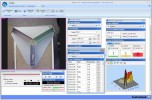Authors
M. Lamar Seibenhenera, Ting Zhaob, Yifeng Dua, Luis Calderilla-Barbosaa,Jin Yana, Jianxiong Jiangc, Marie W. Wootena,Michael C. Wootena,
Lab
Auburn University, AUBURN, USA
Journal
Behavioural Brain Research
Abstract
Abstract
Affective spectrum and anxiety disorders have come to be recognized as the most prevalently diagnosed psychiatric disorders. Among a suite of potential causes, changes in mitochondrial energy metabolism and function have been associated with such disorders. Thus, proteins that specifically change mitochondrial functionality could be identified as molecular targets for drugs related to treatment for affective spectrum disorders. Here, we report generation of transgenic mice overexpressing the scaffolding and mitophagy related protein Sequestosome1 (SQSTM1/p62) or a single point mutant (P392L) in the UBA domain of SQSTM1/p62. We show that overexpression of SQSTM1/p62 increases mitochondrial energy output and improves transcription factor import into the mitochondrial matrix. These elevated levels of mitochondrial functionality correlate directly with discernible improvements in mouse behaviors related to affective spectrum and anxiety disorders. We also describe how overexpression of SQSTM1/p62 improves spatial learning and long term memory formation in these transgenic mice. These results suggest that SQSTM1/p62 provides an attractive target for therapeutic agents potentially suitable for the treatment of anxiety and affective spectrum disorders.
Keywords
Mitochondria; SQSTM1/p62; Animal model; Affective spectrum disorder; Depression; Anxiety
BIOSEB Instruments Used:
Smart 3.0 - Video Tracking System (SMART30)

 Pain - Thermal Allodynia / Hyperalgesia
Pain - Thermal Allodynia / Hyperalgesia Pain - Spontaneous Pain - Postural Deficit
Pain - Spontaneous Pain - Postural Deficit Pain - Mechanical Allodynia / Hyperalgesia
Pain - Mechanical Allodynia / Hyperalgesia Learning/Memory - Attention - Addiction
Learning/Memory - Attention - Addiction Physiology & Respiratory Research
Physiology & Respiratory Research
 Pain
Pain Central Nervous System (CNS)
Central Nervous System (CNS) Neurodegeneration
Neurodegeneration Sensory system
Sensory system Motor control
Motor control Mood Disorders
Mood Disorders Other disorders
Other disorders Muscular system
Muscular system Joints
Joints Metabolism
Metabolism Cross-disciplinary subjects
Cross-disciplinary subjects CONFERENCES & MEETINGS
CONFERENCES & MEETINGS 